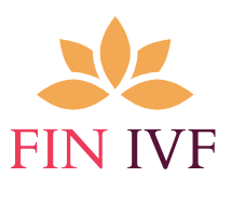

Fertility treatment & advise to conceive
When you need help getting pregnant, it can feel overwhelming knowing where to turn. Our team of fertility experts will provide advice and help get you to the right place.
How long does it take to get pregnant?
Most heterosexual couples conceive within a year of trying, however this depends on a multitude of factors including the couples’ ages, their general health and their reproductive health. For many it can happen quicker or take longer.
According to the World Health Organisation, around 1 in 6 people experience infertility. But there are many options available for those who need help getting pregnant.
Get help getting pregnant
If you’ve been trying to get pregnant for a year or more, it’s a good idea to see a doctor or talk to a fertility specialist. You should do this sooner if you are over 35 and have been trying for 6 months or more, or you have pre-diagnosed fertility issues. Depending on your situation or diagnosis, our fertility experts can recommend the best next step to conceiving whether that be through a fertility test or exploring different treatments.
If you’re struggling to conceive
We understand the emotional and financial toll of infertility, we're here to help you navigate this with exceptional support and personalised human care.
Fertility for every life stage
Fertility treatment that works to make your life easier, not harder.


If you've been trying to conceive for some time without success, we recommend you have a fertility assessment to understand the cause.
Doctors recommend seeking advice from a specialist if you have been trying for more than 6 months and you're over 35, or more than 12 months if you're under 35.
IUI is different from natural conception
IUI is a type of fertility treatment whereby sperm is directly placed into the womb. This is known as artificial insemination which requires medical intervention, unlike natural conception where sperm travels through the cervix and to the fallopian tubes to fertilise an egg.
IVF / ICSI
Both IVF and ICSI are a type of artificial insemination that fertilise collected eggs with sperm to create an embryo that’s later transferred into the womb. The difference lies in how this happens. Sperm and eggs are left to naturally fertilise during IVF, whereas ICSI individually injects single sperm into each egg to aid the process.
Frozen Embryo Transfer
For those who have previously undertaken a cycle of IVF or ICSI, your remaining embryos may have been frozen for later transfer. FET (Frozen Embryo Transfer) is the process of thawing and using these embryos in a new treatment cycle, without going through all the steps of IVF or ICSI.
Get in touch, we are here to help
Book a free consultation today with a fertility advisor
Why choose FIN IVF
Fertility tests and treatments that works to make your life easier, not harder.


At home appointments
No need to book time off of work or stretch about your schedule.


All inclusive costs
Packaged costs that include everything. No hidden costs.


Next gen clinic
Our clinic pairs fertility experts with cutting edge technology.
Start your journey


Female & Male couple
Female solo
Male solo
Not sure. Talk to advisor
Whatever stage you’re at, we can help. Choose the diagnostic package suitable for your situation.
© 2024. All rights reserved














